Iran preparing to strike Israel? What is essence of conflict and will Tehran dare to launch attack
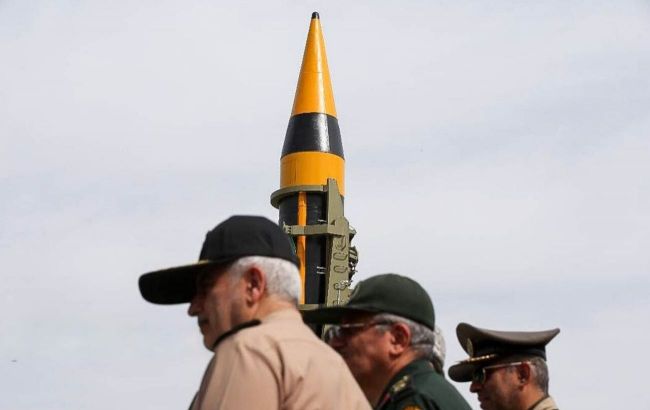 Photo: Iranian military is allegedly preparing to attack Israel (mehrnews)
Photo: Iranian military is allegedly preparing to attack Israel (mehrnews)
Since the beginning of April, the world has been anticipating Iran's response to Israel's strike on the consulate in Damascus, Syria. During this time, there have been multiple reports indicating that Tehran is on the verge of attacking, and according to the latest information, the strike will occur within the next few hours.
More details on the causes of the conflict, Iranian threats, and what the world media are saying about it can be found in the text by RBС-Ukraine.
The material was prepared using information from The Wall Street Journal, CBS News, El Pais, Politico, Times of Israel, statements from Iranian, Israeli, and American officials, as well as the analytical column by Iliya Kusa of the Ukrainian Institute of the Future for RBC-Ukraine.
Contents
- First move by Israel? The essence of the new conflict and possible causes
- Exchange of threats. Iran threatens with a strike, Israel is ready for war
- Attack within 24-48 hours? Why there is no final decision
- Worst-case scenario and whether Iran will dare to strike Israel
First move by Israel? The essence of the new conflict and possible causes
On April 1st, Israeli forces launched a missile strike on the Iranian consulate in Damascus. At least seven people were killed, including the commander of the Al-Quds unit (the expeditionary wing of the Islamic Revolutionary Guard Corps), General Mohammad Reza Zahedi, and General Mohammad Hadi Haji-Rahimi.
Regional media blamed Israel for the attack. Officially, Israel did not take responsibility, but neither did it deny involvement. Presumably, the target in the Syrian capital was attacked by F-35 aircraft at a time when Iranians were present in the building. This attack set an important precedent. Prior to this, the Israeli army had repeatedly targeted objects belonging to Iranian and pro-Iranian forces in Syria, but had never struck diplomatic buildings.
"In terms of international law, this is a gross violation of the immunity of diplomatic representations, which are considered the territory of the country they represent, the interests of which they represent," wrote Ukrainian Institute of the Future analyst Iliya Kusa in a column for RBC-Ukraine.
Based on the status of the casualties, Iran has suffered its most serious losses since the assassination of General Qasem Soleimani in 2020. The strike was met with alarm. Criticism came from UN Secretary-General Antonio Guterres, China, Saudi Arabia, and other countries unfriendly to Israel.
It's worth noting that Iran itself has violated the immunity of diplomatic objects on several occasions. The most recent incident occurred in 2016 when a crowd stormed the Saudi embassy in Tehran. However, Iran has never attacked embassies with drones or missiles. In other words, the Israeli attack is significant enough to mark a new chapter in the Middle East confrontation potentially.
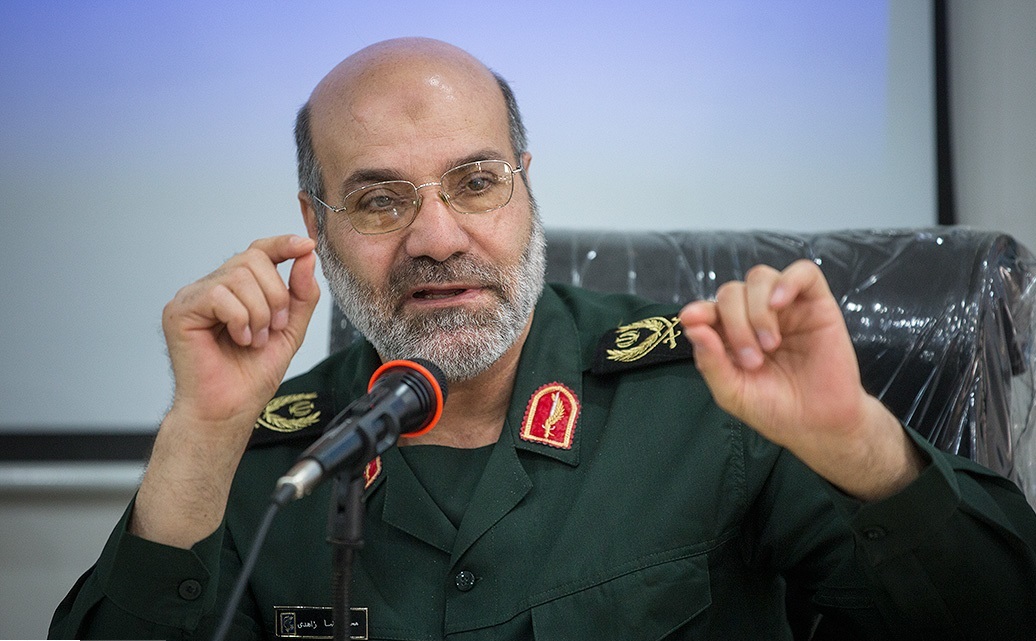
Photo: As a result of the attack, Iranian General Mohammad Reza Zahedi was eliminated (Fars Media Corporation)
Additionally, this comes amidst increasing international pressure due to the war in the Gaza sector. Currently, the actions of the Israel Defense Forces (IDF) are being criticized not only by adversaries but also by the strategic ally, the United States. At the end of March, Washington did not veto a UN Security Council resolution calling for an immediate ceasefire. In response, Prime Minister Benjamin Netanyahu canceled a military delegation's trip. Therefore, the strike on the Iranian consulate also serves as a signal to the world that Israel intends to address issues as it sees fit.
The escalation with Iran is occurring against the backdrop of the Gaza war, which has been ongoing for over six months. Despite Hamas' support for terrorists and anti-Israel rhetoric, in practice, Tehran has not dared to engage in direct military conflict, instead activating proxy forces such as the Houthis in Yemen and, to a lesser extent, the Lebanese Hezbollah.
According to Kusa, there could be several reasons for the missile strike on a diplomatic building. Perhaps Israel is attempting to draw Iran into direct military confrontation to raise the stakes and compel US intervention. Alternatively, it may seek to disrupt the fragile ceasefire achieved by the US and pro-Iranian groups in Syria and Iraq. Another possibility is to demonstrate progress in the war against Iran amid the protracted campaign in Gaza.
Exchange of threats. Iran threatens with a strike, Israel is ready for war
The attack elicited an angry reaction from senior Iranian officials, who immediately promised a "harsh response."
"We will make them regret this and other crimes like it," said Iran's Supreme Leader Ali Khamenei.
Iranian President Ebrahim Raisi called the attack on the consulate in Damascus "inhuman, aggressive, and heinous." Meanwhile, Iran's Foreign Minister Hossein Amir-Abdollahian stated that Israel attacked with American-made planes and missiles, therefore supposedly holding the US responsible as well.
According to Bloomberg, Tehran sent a written message to Washington to "step aside," and allegedly, in response, the US asked not to attack their targets. The American side did not officially comment on this. Israel did not inform its partner in advance about the airstrike.
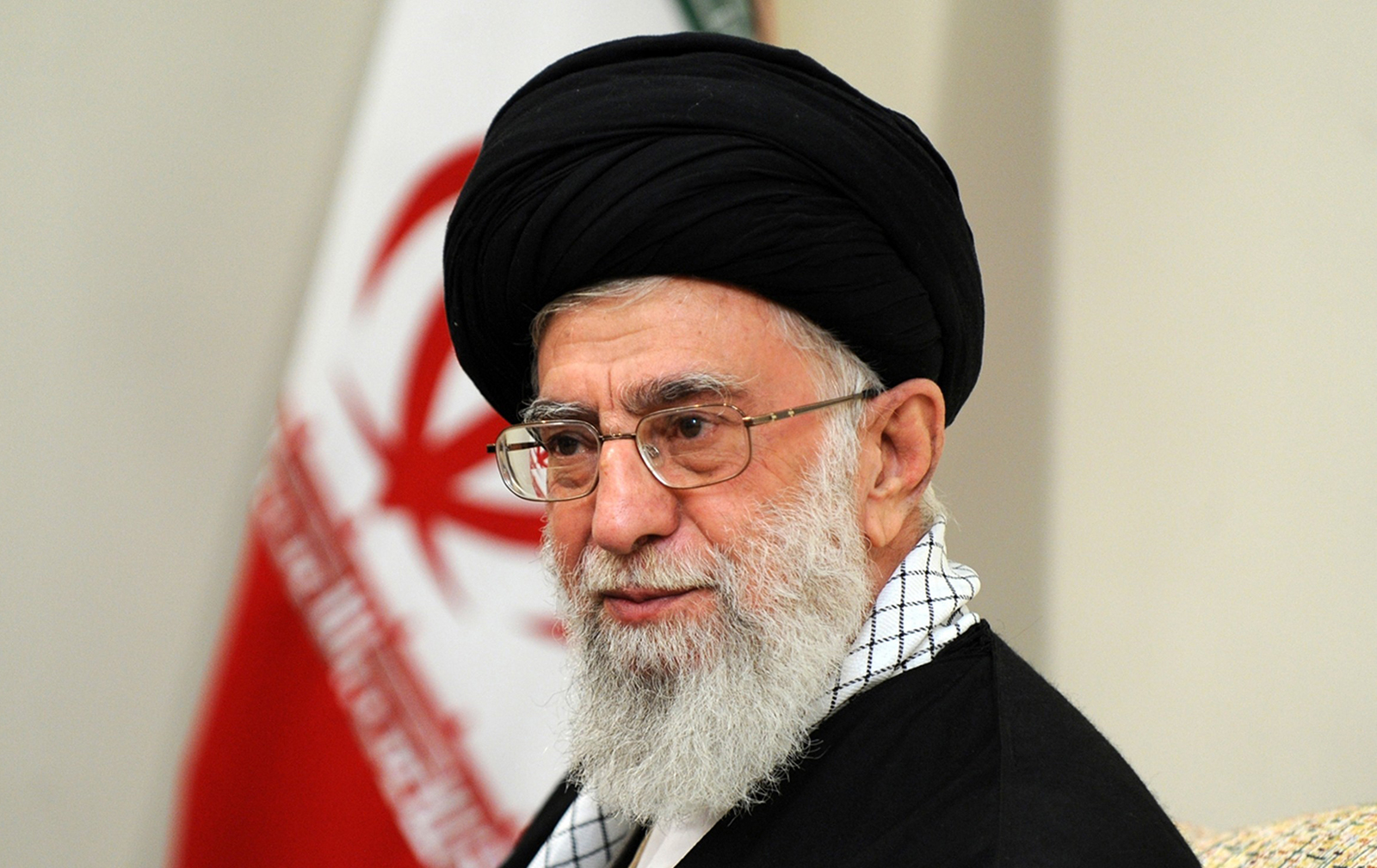
Photo: Ayatollah Ali Khamenei threatens Israel with retaliation (Getty Images)
These days, Israeli Foreign Minister Israel Katz has warned that his country will respond to Iranian attacks.
"If Iran attacks from its territory, Israel will react and attack in Iran," he wrote on his X microblog.
Meanwhile, US President Joe Biden assured Netanyahu of unwavering support. According to him, American partners will do everything possible to protect Israel. On the eve, the Iranian mission to the UN issued an ultimatum. It demands that the Security Council condemn the consulate strike, otherwise Tehran will use force. IDF Spokesperson Daniel Hagar emphasized that the Israel Defense Forces are ready for an attack, constantly assessing the situation and acting wherever necessary.
According to The Times of Israel, the head of the Iranian Foreign Ministry has sent a new message to Washington. It states that the response to the consulate strike will be controlled and non-escalatory. Perhaps it refers not to a direct attack but to attacks by pro-Iranian proxies such as Hezbollah or Hamas in the Gaza Strip.
British Foreign Secretary David Cameron publicly responded to Iranian threats. He urged his Iranian counterpart, Abdollahian, to prevent further escalation in the Middle East.
Attack within 24-48 hours? Why there is no final decision
The Wall Street Journal, citing sources, reports on the preparation for a direct attack. According to its information, Iran is preparing to strike within the next 24-48 hours at targets in the southern or northern part of Israel.
However, a source close to the leaders of the Iranian regime says that there is still no final decision regarding the attack plans. It is also unclear whether the attack will occur on Friday or Saturday.
An advisor to Ayatollah Khamenei stated that the plans are under consideration by the Supreme Leader, he is still weighing the political risk.
Earlier, US officials believed an inevitable strike on Israeli or American forces in the Middle East. Now, intelligence is confident that Tehran will attack Israeli territory rather than Washington's and Jerusalem's interests in other parts of the region, writes the WSJ.
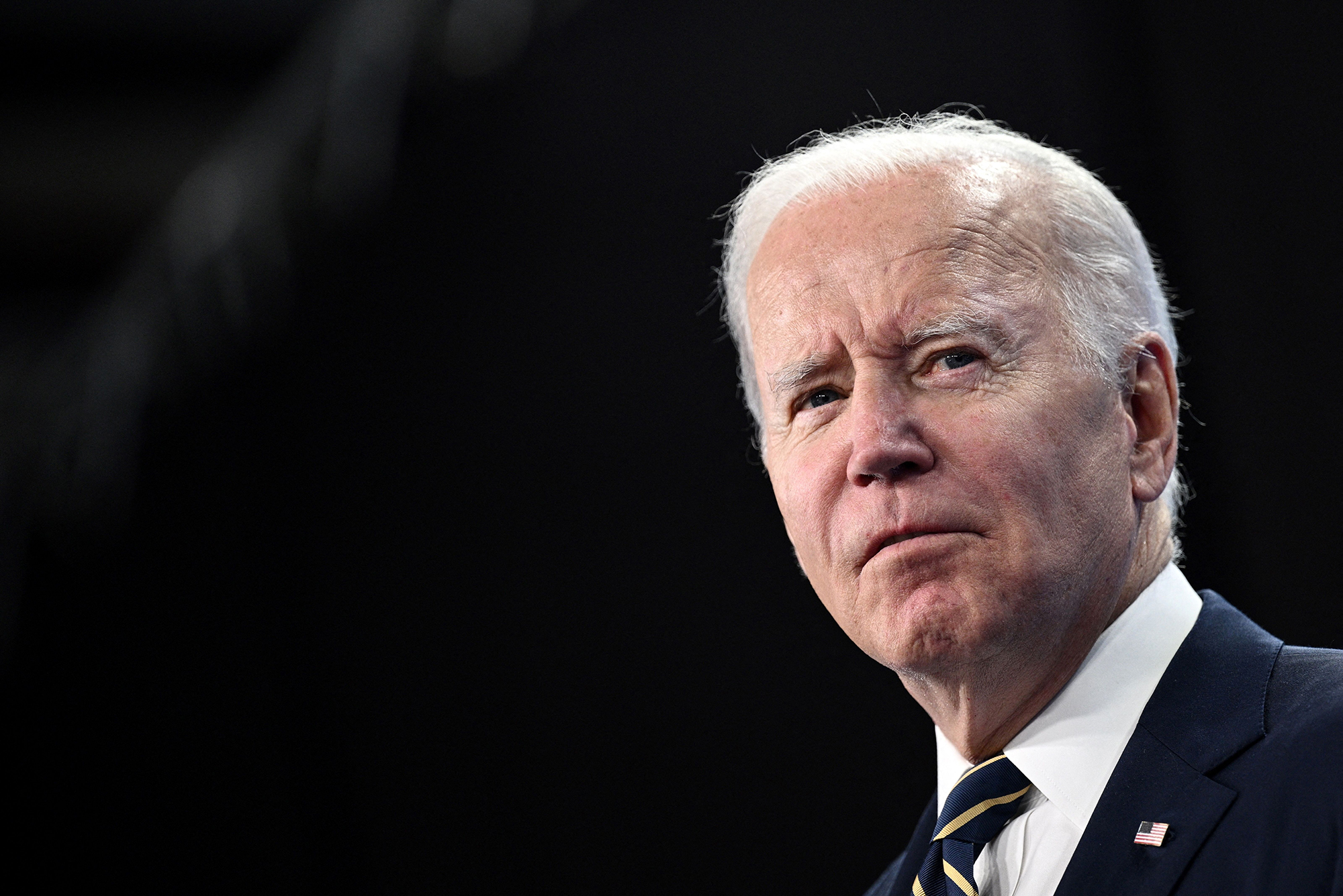
Photo: US President Joe Biden reassures Israel of unwavering support (Getty Images)
Yesterday, the US Embassy in Israel advised its citizens not to leave the central areas of the country.
"Out of an abundance of caution, U.S. government employees and their family members are restricted from personal travel outside the greater Tel Aviv (including Herzliya, Netanya, and Even Yehuda), Jerusalem, and Be'er Sheva areas until further notice," said a US government representative.
The Pentagon confirmed that General Michael Eric Kurilla, the head of the US Central Command responsible for operations in the Middle East, is heading to Israel. Defense Secretary Lloyd Austin, in a conversation with his Israeli counterpart Yoav Gallant, reaffirmed "solid support amidst growing threats from Iran." According to him, the Israeli side can rely on the US for protection against Iranian attacks.
Also yesterday, Prime Minister Benjamin Netanyahu warned Tehran.
"Whoever harms us, we will harm them. We are prepared to meet all of the security needs of the State of Israel, both defensively and offensively," he said, addressing military personnel at an airbase in the south of the country.
Politico also writes about the preparation for a large-scale strike. However, it notes that Iran is adjusting its plans and thereby sending signals to the US to prevent possible escalation. Currently, two options are being considered - a direct attack or by Lebanese Hezbollah. Retired Pentagon and CIA officer Mick Mulroy believes that the success of the strike will determine whether it escalates into a wider conflict.
Worst-case scenario and whether Iran will dare to strike Israel
Meanwhile, CBS News notes that Israel is preparing for the worst-case scenario, which, according to US officials, could become a reality in the coming hours.
Two sources informed the news agency that a major attack is expected as soon as Friday, April 12. It may involve the use of over 100 armed drones and dozens of missiles. Preliminary targets are believed to be military facilities within Israeli territory. The US side believes that it will be challenging for the IDF to repel an attack of such magnitude.
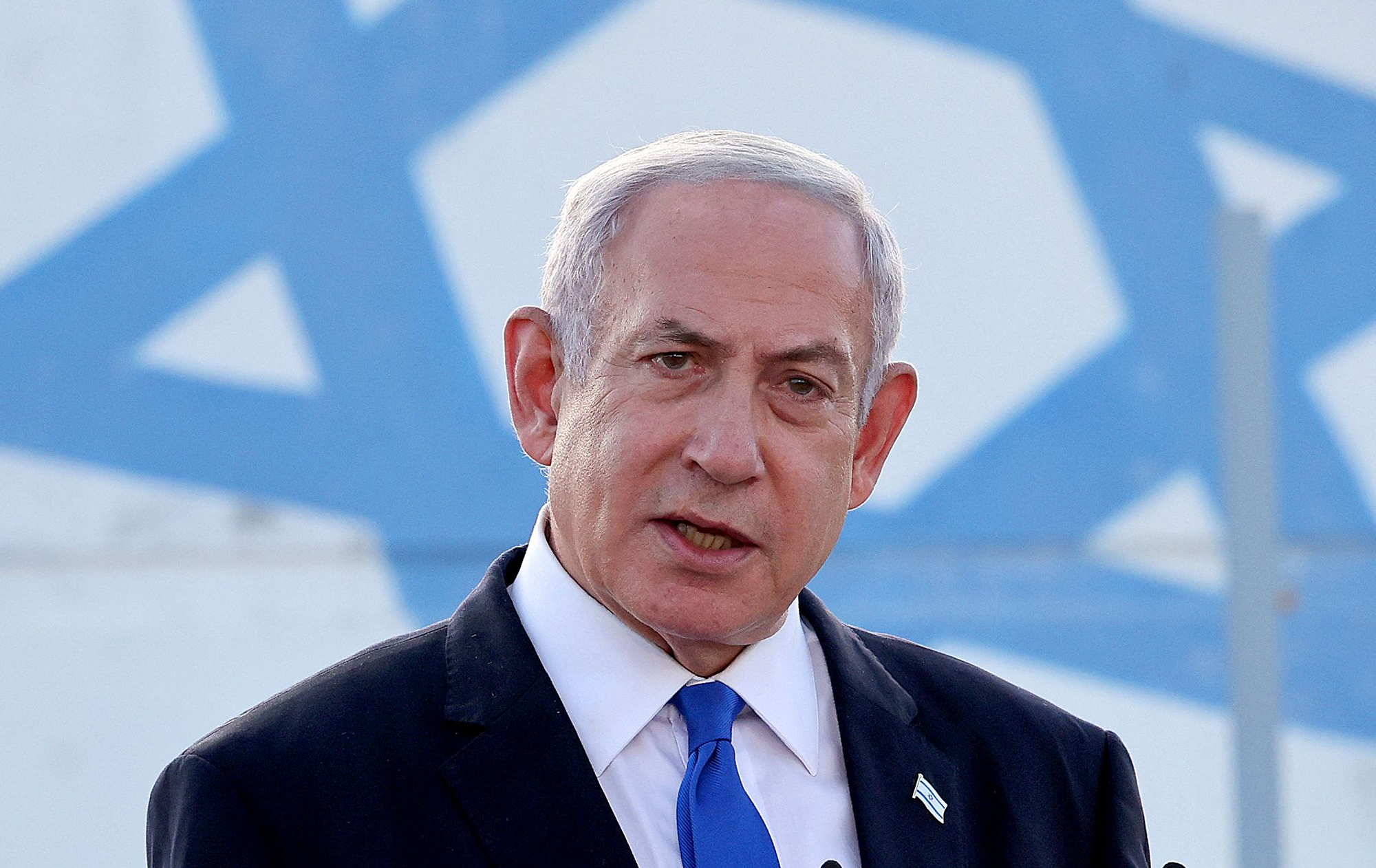
Photo: Israeli Prime Minister Benjamin Netanyahu speaks about readiness to fight with Iran (Getty Images)
Iran has not publicly stated how or when it will respond to the missile strike on its consulate in Syria, so it is unclear how far its leaders will go. The option of a direct attack indeed poses a threat that the conflict with Hamas in the Gaza Strip could escalate into a broader regional conflict.
Security expert and former Mossad intelligence officer Sima Shine believes that the most alarming events of the past decade are unfolding right now. According to her, a direct strike on Israel could involve a combined attack similar to the one Iranian forces conducted against the Saudi Arabian oil facility Saudi Aramco in 2019.
"They will try to do it on the military or some military asset. But the question will be the damage. If there would be many injured people, killed or injured … I think it has the potential for a huge escalation," she said, adding that neither side actually wants the conflict.
El Pais reports signs that Iran is actually afraid of a "devastating" retaliation from Biden and Netanyahu. While there is military potential for an attack, it seems that even one of its allies, the Russian Federation, is trying to dissuade Tehran. Earlier, the press secretary of the Russian president, Dmitry Peskov, called for maximum restraint.
"Iran’s missile capability is significant. (Its missiles) have reached Iraq and Syria. They could very well reach Israel," says Luciano Zaccara, a professor at the Gulf Studies Center at Qatar University.
The question remains whether such an attack aligns with Iranian interests.
"(It is) difficult for Iran to directly attack (Israel) because it knows that if it does so and admits it, Israeli retaliation and that of its ally, the United States, will be considerable," he added.
The verbal sparring between foreign ministers and Benjamin Netanyahu's statement about readiness for war not only in the Gaza sector but also in the region, an expert calls a game of deterrence between countries that have long been in a state of war. There are known cases of Israel conducting operations on Iranian territory, including the elimination of nuclear scientists in Tehran and the father of Iran's nuclear program, Mohsen Fakhrizadeh, in November 2020.
At the same time, it is evident that Iran's deterrent potential is weaker than Israel's.
"And technologically it is not as advanced as Israel. I don’t think it’s going to launch missiles in a very obvious way from its territory, because the (Israeli) response will come there as well. Israel has made that very clear," emphasized Zaccara.

